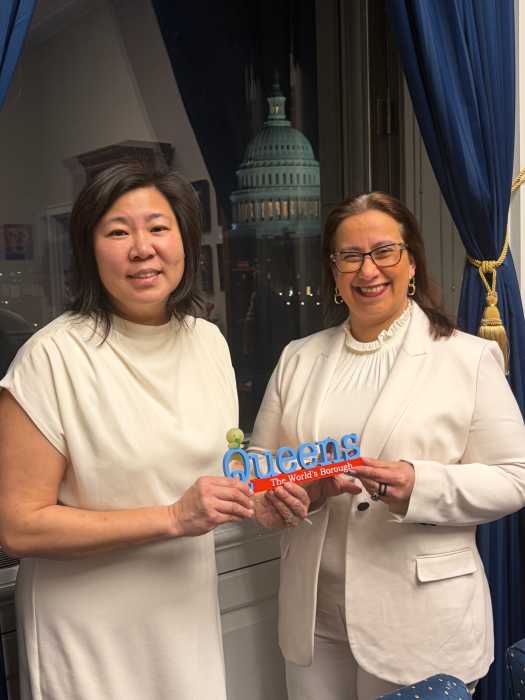Kristina Richardson, an associate professor of history at Queens College and the CUNY Graduate Center, is one of nine outstanding early- and mid-career scholars awarded the Dan David Prize, a major international award that recognizes and supports outstanding contributions to the study of history and other disciplines that shed light on the human past.
The world’s largest history prize, the Dan David is sometimes described as the Nobel Prize for history. A committee of eminent scholars in the historical fields assessed hundreds of nominations from around the world as part of a rigorous process to select the winners, who will each receive $300,000 to recognize their achievements to date and support their future work.
“It is deeply gratifying to see Professor Kristina Richardson’s work recognized with the top academic history prize,” said Queens College President Frank Wu. “It is external validation of what we have long known at Queens College —that our students are learning from world-class faculty.”
Richardson studies the medieval Islamic world and the Roma. Her investigation of Arabic manuscripts highlights the importance of understanding the lives of non-elites and marginalized groups when seeking to gain a complete view of a society as a whole.
“I feel exceptionally lucky to have top historians recognize my work in this way,” Richardson said. “And I am grateful for the support of CUNY along the way, as I’ve built my career.”
Richardson’s research is based on the writings and material production of non-elites in the medieval Middle East. She has analyzed the intellectual networks of medieval disabled writers, explored the degraded position of blue- and green-eyed people in early Islamic societies, identified the only known pre-modern Arabic sign alphabet and co-published a study and edition of the earliest known notebook of an artisan or merchant written in Arabic.
She has focused her study on the disabled and the Roma and is currently writing a book about free and unfree African and Asian manual laborers in early Islamic Basra, Iraq.
Her findings force a radically new understanding of European modernity and the place of linguistic and ethnic minorities in its formation. Her research into Romani contributions to late medieval and early modern European society provide much needed context for modern appreciation of the long history of Roma in Europe.
Richardson is the author of “Difference and Disability in the Medieval Islamic World” (2012), “Roma in the Medieval Islamic World: Literacy, Culture, and Migration” (2022) and co-author with Boris Liebrenz of “The Notebook of Kemāl al-Dīn the Weaver” (2021). She is also the co-editor of the journal “Der Islam.”
Richardson earned a BA in history and certificate in Near Eastern Studies at Princeton University and later received a master’s degree and a Ph.D. at the University of Michigan. Her work has been supported by the National Endowment of the Humanities, European Research Council, Marie Curie Foundation, Mellon Foundation, ArtSTOR and the City University of New York.



































